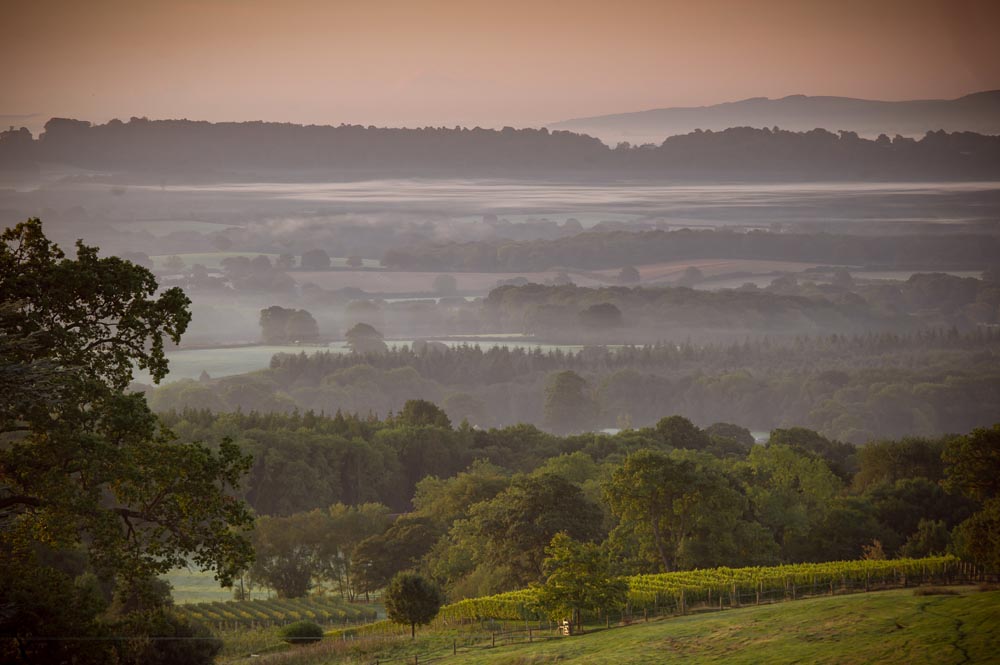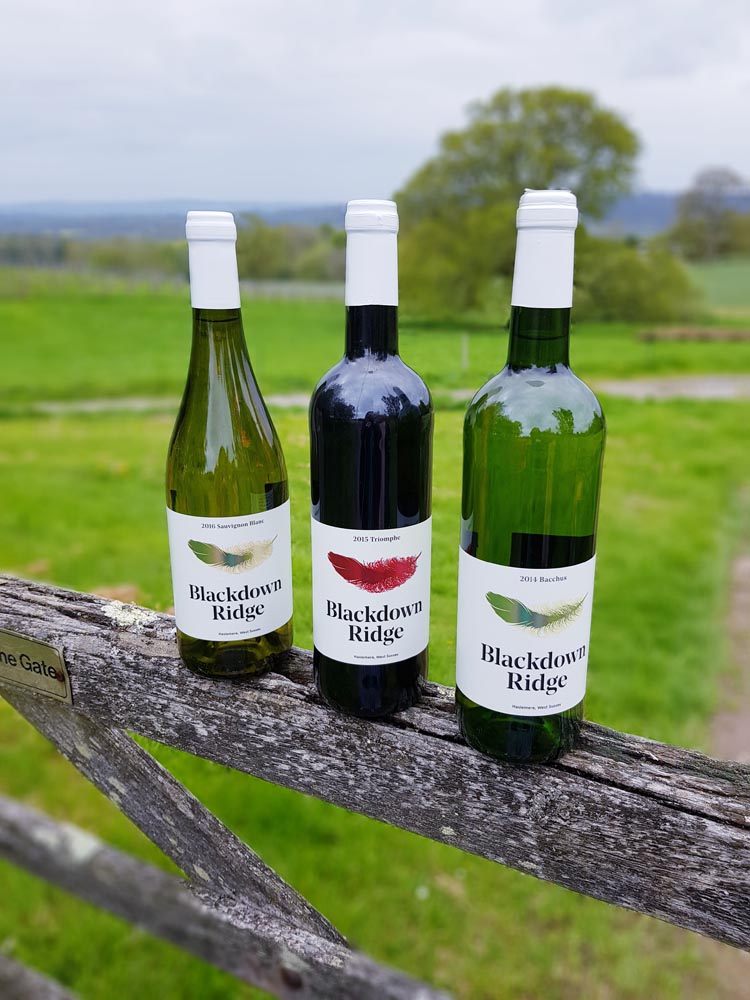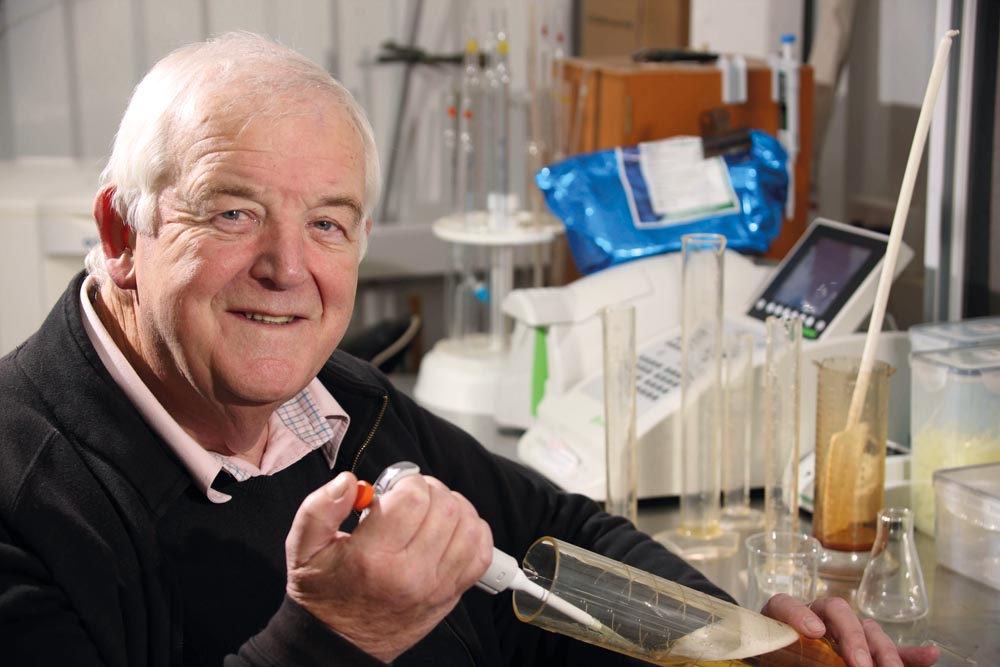
We are a small but cohesive team, our ethos here is to create superb wines, spread the word about the wonderful English wine industry, and encourage visitors to spend time with us in the wonderful countryside overlooking the South Downs National Park.
The soil of the Sussex Weald shares much with the terroir of the Champagne region of France, and this influenced our plantings of the classic sparkling wine varietals: Pinot Noir, Pinot Meunier and Chardonnay. These have been used to create our classic cuvee sparkling white wine which is delicate and superbly balanced, also our first sparkling rosé which is bright and summery and perfect for a celebration.
The grapes planted for our range of still wines include the aromatic Bacchus for our single varietal English white wine, Triomphe d’Alsace and Sauvignon Blanc.
We have 10.5 acres currently planted to vines which are nurtured throughout the growing year with an environmentally sensitive approach to viticulture that ensures optimum ripeness, yield and fruit quality.
As harvest approaches, regular sampling and observation ensures that when the grapes are plump, ripe and full of delicious varietal flavours, our expert winemaker can choose the perfect moment to begin the harvest. The winemakers first decision is to destalk or not, this depends on the elements he wants to create in the final product.
As the grapes arrive at the Winery a careful blend of science and magic begins. Our white and rose varieties are then gently pressed in our pneumatic press to minimise the extraction of undesirable colour and tannins, only releasing the grape juice, known as the ‘must’. The fresh must is moved to our stainless steel tanks for fermentation, transforming the natural sugars of the grape into alcohol. They will remain in the tanks until they are filtered, blended and bottled several months later.
Grapes intended for red wines undergo a slightly different process where, once destalked, they are transferred to open-top fermenters. Fermenting the juice with the skins allows for all the distinctive flavour and colour components of the skins to be released. Maintaining temperature control is key – too cold and the yeast won’t work, too hot and the fermentation will run too fast and possibly get stuck.
Once the tannins and flavours are ready the skins are removed through
pressing and malolactic fermentation starts, transforming tart malic acid found naturally in the fresh grapes into softer, rounded and more desirable lactic acid. Racking the wine into small oak barrels for the remainder of the process allows the red wine to age and develop, and regular tasting and careful blending ensures that the result is a truly well-rounded and quality tested example of English wine.
You may have heard the word ‘recherché’ meaning refined, elegant, rare and undiscovered - well, we like to think that we have a particularly recherché selection of wines for you to explore.
We are happy to answer trade and retail enquires on 01428 656003 or office@blackdownridge.co.uk
We also specialise in providing wines for your celebrations. Please call us for further information and advice.






